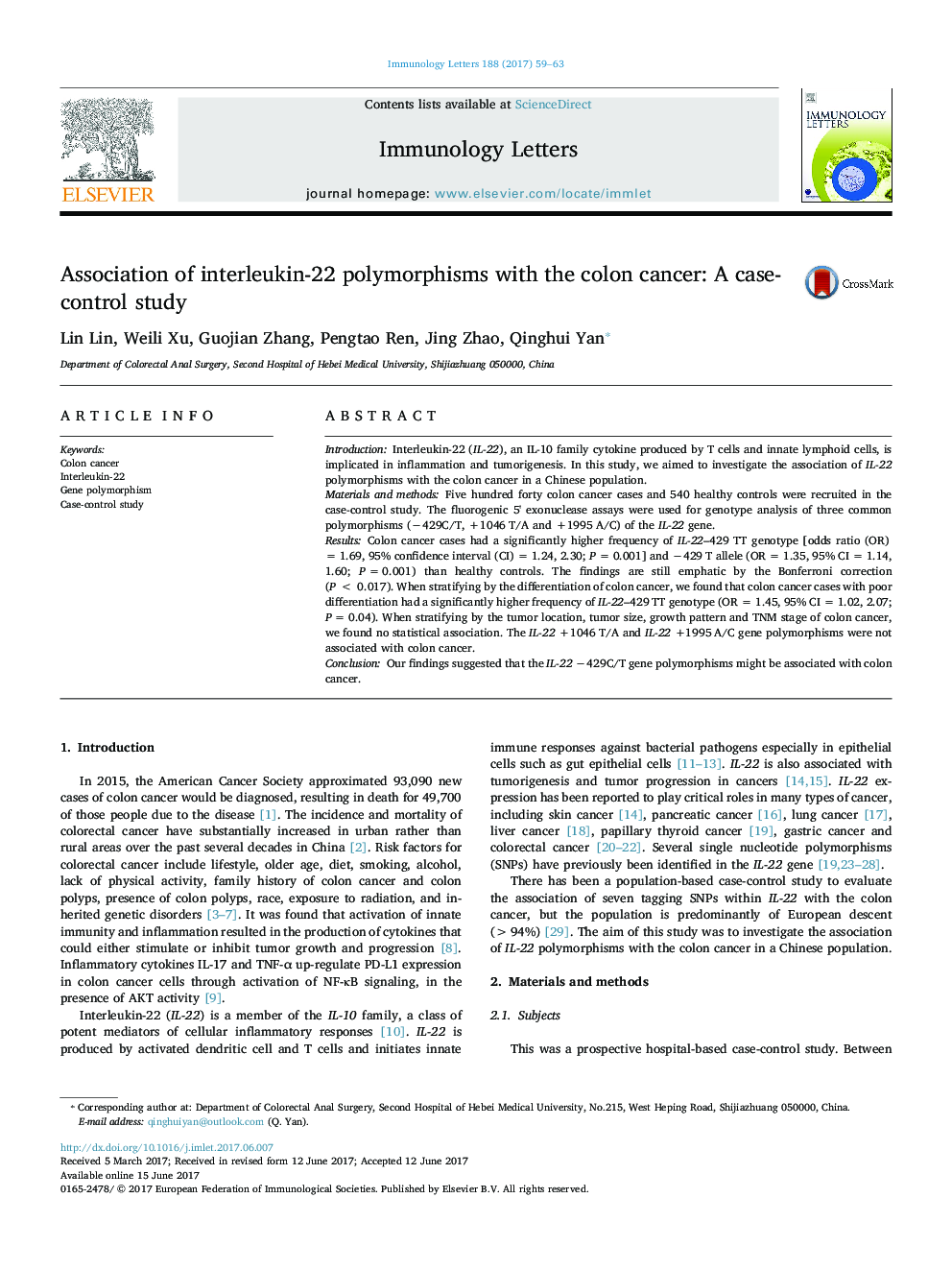| Article ID | Journal | Published Year | Pages | File Type |
|---|---|---|---|---|
| 5666723 | Immunology Letters | 2017 | 5 Pages |
â¢540 colon cancer cases and 540 healthy controls were recruited in the case-control study.â¢Colon cancer cases had a significantly higher frequency of IL-22-429 TT genotype and â429 T allele than healthy controls.â¢Colon cancer cases with poor differentiation had a significantly higher frequency of IL-22-429 TT genotype.
IntroductionInterleukin-22 (IL-22), an IL-10 family cytokine produced by T cells and innate lymphoid cells, is implicated in inflammation and tumorigenesis. In this study, we aimed to investigate the association of IL-22 polymorphisms with the colon cancer in a Chinese population.Materials and methodsFive hundred forty colon cancer cases and 540 healthy controls were recruited in the case-control study. The fluorogenic 5' exonuclease assays were used for genotype analysis of three common polymorphisms (â429C/T, +1046Â T/A and +1995Â A/C) of the IL-22 gene.ResultsColon cancer cases had a significantly higher frequency of IL-22-429 TT genotype [odds ratio (OR)Â =Â 1.69, 95% confidence interval (CI)Â =Â 1.24, 2.30; PÂ =Â 0.001] and â429Â T allele (ORÂ =Â 1.35, 95% CIÂ =Â 1.14, 1.60; PÂ =Â 0.001) than healthy controls. The findings are still emphatic by the Bonferroni correction (PÂ <Â 0.017). When stratifying by the differentiation of colon cancer, we found that colon cancer cases with poor differentiation had a significantly higher frequency of IL-22-429 TT genotype (ORÂ =Â 1.45, 95% CIÂ =Â 1.02, 2.07; PÂ =Â 0.04). When stratifying by the tumor location, tumor size, growth pattern and TNM stage of colon cancer, we found no statistical association. The IL-22 +1046Â T/A and IL-22 +1995Â A/C gene polymorphisms were not associated with colon cancer.ConclusionOur findings suggested that the IL-22 â429C/T gene polymorphisms might be associated with colon cancer.
